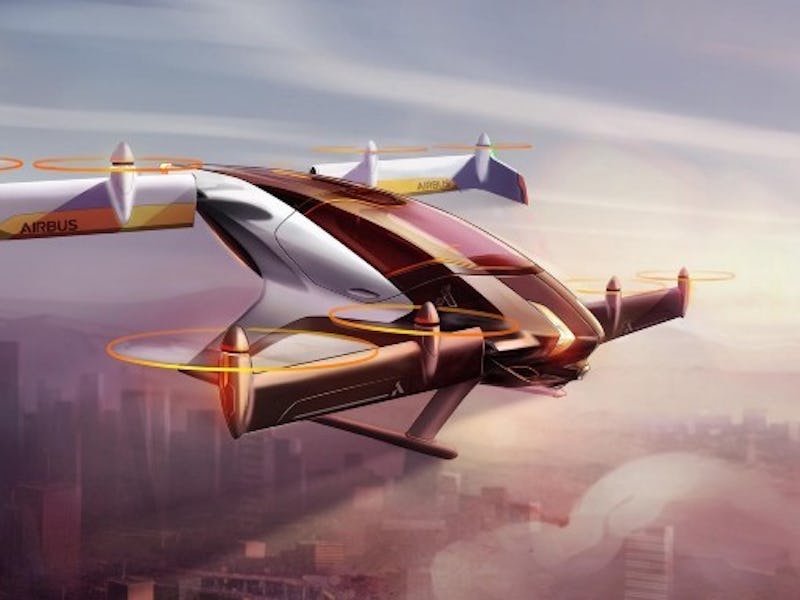Airbus has a big plan to conquer the skies with an array of vertical takeoff and landing machines (VTOL), starting as soon as this year with a prototype. The company wants to use its Vahana project to solve the problems of traffic congestion that plague major cities, with users booking trips using a smartphone app in a similar fashion to Uber.
“One hundred years ago, urban transport went underground, now we have the technological wherewithal to go above ground,” Airbus CEO Tom Enders at the DLD Conference in Munich. “We are in an experimentation phase, we take this development very seriously.”
He added that he expects a prototype to take to the skies this year, Reuters reported.
And beyond this year, Enders offered this prediction for 2031:
“We are thinking that in fifteen years, we can do 90-100 passengers with an electric or hybrid aircraft,” Enders said, noting that “this is not yet an intercontinental-range aircraft, this is not an A-380 or something like that, but it’s good progress.”
Airbus has previously expressed an interest in bringing a flying car to consumers by 2020, but it now seems to have made the project greater a priority. The Urban Air Mobility division, which is working on the project, was set up last year as a way to explore ambitious transportation concepts for the future.
“If we ignore these developments, we will be pushed out of important segments of the business,” Enders said.
The Airbus concept will use a four-rotor design for the VTOL capabilities, which are seen as useful in urban environments — they don’t require the same size spaces as traditional aircrafts.
The big hurdle remains autonomous technology. Manufacturers are only just beginning to work autonomous technology for land-based vehicles, and even then, automakers aren’t expected to hit the mainstream with self-driving cars for another few years, when more data is gathered that can help the vehicles navigate.
Despite this trajectory, Enders did observe that’s sort of backward. Flying should come first.
“Autonomous flying is easier than autonomous driving and I think more and more people realize that, never the less, I think it might be autonomous driving, or partially autonomous driving, is implemented first,” he said.
Airbus is not the only company that believes the way forward is VTOL transport. Uber released a white paper on its plan for flying car service late last year, explaining that the vehicles are ideal for longer journeys where traditional cars would have to tackle traffic in and out of the city.
And what did Uber project would be its Prius or Camry for the skies? The Airbus Vahana, of course.
